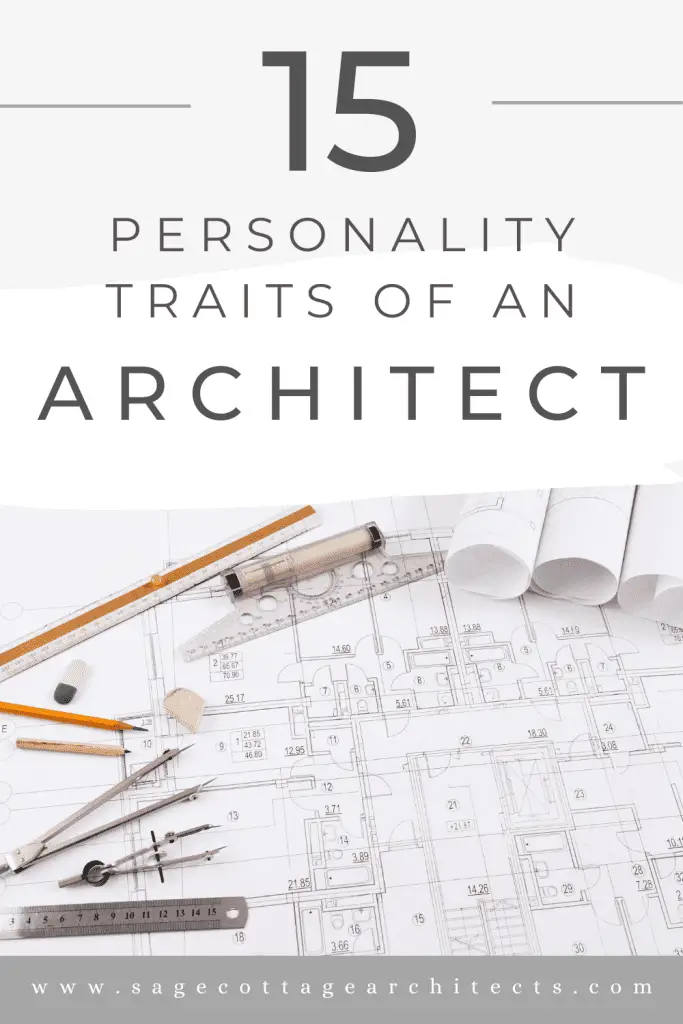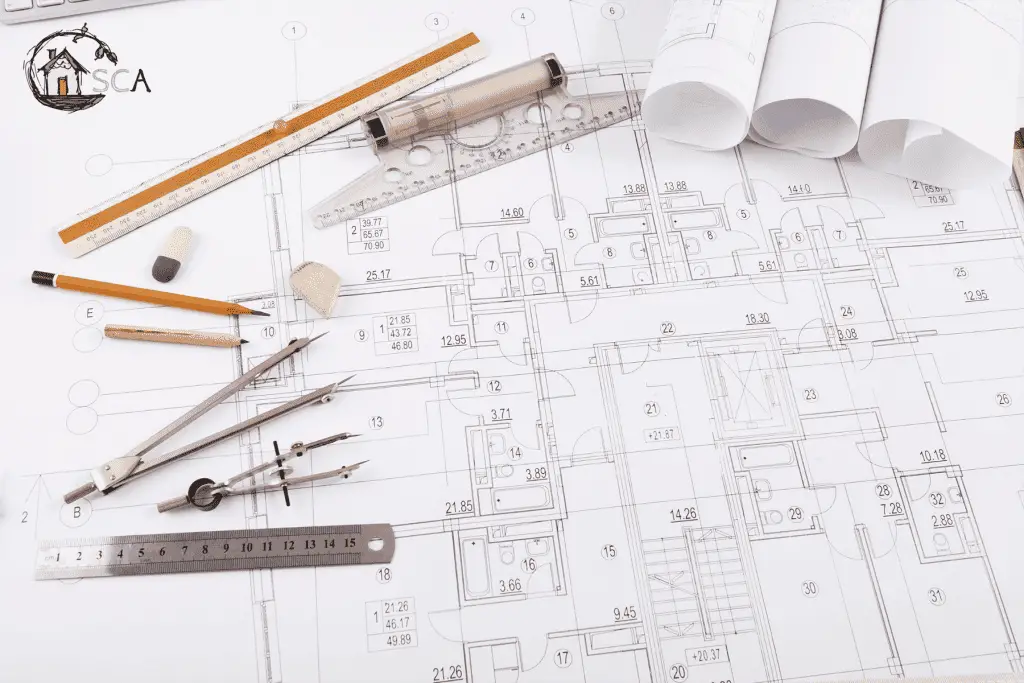Are you thinking of becoming a professional architect and wondering what characteristics an architect needs for a successful career? These 15 personality traits of an architect will help you understand the qualities needed to give you an edge in the wonderful yet challenging field of architecture.

Before we take a look at the core personality traits of a successful architect, I felt like I should address the architect personality type from the Myers-Briggs type indicator test. The Meyers-Briggs test (MBTI) has an INTJ personality type (Introversion, Intuition, Thinking, and Judging) that is known as “The Architect” which is said to be among some of the rarest personality types.
Famous INTJs with successful careers include Elon Musk, Mark Zuckerberg, Isaac Newton and Hilary Clinton.
While a personality assessment can help you identify your strengths, I’m not sure that you absolutely need to fall into the INTJ category in order to be a successful architect. In fact, many historical, famous, great architects do not fall into the INTJ category.
Famous architect Frank Lloyd Wright was said to be an INFP (Introverted, Intuitive, Feeling, and Prospecting), which is known as “The Mediator” which is also one of the rarest types of personalities.
15 Personality Traits of an Architect
Before you examine your career paths and enroll in higher education (architecture school), it might be helpful to try and determine ahead of time if you will be a good architect. This will help you make wise career choices so you don’t waste time or money.

While I’m sure not all architects have all of these traits, I would imagine that the best architects have a lot of these key characteristics. An architect’s job is challenging enough, you don’t want to find out after you commit to it that you aren’t a suitable candidate because you just don’t have the personality traits of an architect that will help ensure great success.
Check out these 15 personality traits of an architect:
Creativity
Architects are creative. There is no real way to get around that characteristic. They are constantly dreaming up new ideas and often have a different perspective on things. They are able to develop things that have visual appeal. This is probably the most important skill an architect has.
Analytical skills
The ability to think analytically means being able to apply logic and reason by examining all aspects of a situation. Architects need to have an analytical nature and be able to examine all of the constraints put on projects of all kinds.
Problem-solving skills
The entire process of architectural design involves applying logical reasoning to a bunch of different pieces that do not necessarily obviously fit together. Architects need to be analytical problem-solvers in order to assemble the puzzle pieces of: client needs, code requirements, site conditions and more. They need be able to apply creative solutions when the pieces don’t fit together easily. Problem-solving is essentially combining analytical skills with creativity.
Attention to detail
Architects have to be able to see the big picture of a particular design, but also be able to zoom in to the smallest minutia of a detail, and back out again in order to ensure a successful project. They have to pay attention to the smallest aspects of a project to ensure that they work together to achieve big picture success.
Multi-tasking
Think of the architect like an orchestra conductor. Now imagine that conductor is also playing their own instrument while leading the band. They have to have a basic understanding of all of the instruments and be able to organize and manage the entire design team and the design process. Architects have to process information about different subjects that they do not have full knowledge of but are required to coordinate.
Communication skills
The way an architect communicates has many layers. They need to be proficient in verbal and visual communication. Many effective architects can draw well, though drawing skills aren’t as important as the ability of an architect to articulate an idea in a drawn form.
Social skills
Architecture in some ways appeals to people who are more introverted but the best architects will be comfortable around other human beings in social situations with various kinds of social interactions. Effective communication is critical with clients, team members and construction personnel.
Thinking in 3D
While technology has allowed us to show things in 3D, the reality is that architecture is still presented in 2D to construction teams. So the architect needs to be able to visualize and understand how their designs work in 3D (the real world) while drawing them in 2D for contractors to build. They need to be able to visualize details and connections and illustrate complex information in a simpler way.
Lifelong learners
Architecture has this tendency to provide daily opportunities to learn something new. The good news is that it’s never boring. This new information is because of changes to building codes, new products that hit the market, contractor means and methods, new and different building types, etc. Some of the most successful architects practice well into their 70’s and I think this lifelong learning aspect has a lot to do with it.
Curiosity
Because of the ever changing nature of architecture, curiosity is a critical skill, not only to keep you up to date with changes in the industry, but to find new and better ways and innovative solutions to things that can enhance a project.
Overthinking
While overthinking can be thought of as a trait that can hold you back, it’s also a trait that can complement your attention to detail and multi-tasking to make you a better architect. Over-thinkers tend to analyze every aspect of a project. So long as you don’t allow your overthinking to paralyze your decision-making process, it’s a good skill to have.
Work ethic (high standards)
Architects often spend long hours working in order to meet deadlines. Even with the best workload balancing, there will always be those projects that require you to spend extra time in the office in order to get a project out the door. Having a work ethic that pushes you to do whatever it takes to get the job done and done well is super important.
Passion for people
Architectural is a social art. Buildings are made for people and ultimately need to function for human beings. Having a passion for solving the problem of providing habitats, workspaces, shelters, etc. that meet the functional needs of people all while serving as visual art makes architecture a noble career choice. Design that is inspired by passion for people is the kind of design that will give you career satisfaction and provide you with the motivation you need to push through despite challenges.
Capacity to collaborate
Architects collaborate with clients, civil engineers, mechanical engineers, structural engineers, contractors, each other and more. Architectural work environments hum with excitement when this collaboration happens, and it’s critical that you are able to work well with other people.
Having a thick skin
No matter how good you are at your job as an architect, someone (often clients) will have insight and opinions on your designs and solutions that may require you to not only absorb criticism, but acquiesce and make changes. Having a thick skin will help keep you from feeling defeated when those things happen.
How many of these personality traits of an architect do you have?







